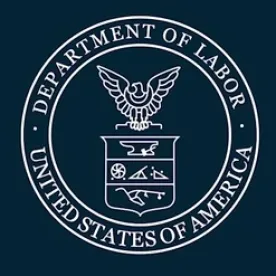Investment Adviser Considerations: The Department of Labor’s Prohibited Transaction Exemption and Its Impact on Recommendations to Plans, Participants and IRAs (Part 4)
On December 18, 2020, the DOL issued its final prohibited transaction exemption (PTE) that will allow conflicted compensation resulting from nondiscretionary fiduciary investment advice. The PTE is titled “Improving Investment Advice for Workers & Retirees.” The citation is Prohibited Transaction Exemption 2020-02. (https://www.govinfo.gov/content/pkg/FR-2019-07-12/pdf/2019-12208.pdf) The exemption became effective on February 16, 2021.
The exemption and the associated expansion of the definition of fiduciary advice will have the greatest impact on recommendations by investment advisers and broker-dealers (1) to retirement plan participants to take rollovers to IRAs with the advisors, and (2) to IRA owners about how to invest in their IRAs. My last article, Best Interest #38, discussed the impact on investment advisers who recommend rollovers. This article covers the impact on investment advisers for their services to IRAs and related conflicts of interest.
As background, an exemption is an exception to the prohibited transaction rules, but the exception is only available if its conditions are satisfied . . . and there are conditions. My Best Interest #37 post explains the conditions in the proposed PTE, and the provisions of the final PTE are substantially similar.
As finalized, the exemption permits conflicted fiduciary advice to ERISA retirement plans, participants and IRAs resulting from nondiscretionary recommendations. (Prohibited transactions resulting from discretionary investment management are not exempted.) Level fees ordinarily do not constitute prohibited transactions (that is, financial conflicts of interest), except in the rollover context. (For more on that, see my last post, Best Interest #38.) However, some advice by investment advisers does involve conflicts of interest, for example, a recommendation to an IRA owner that results in revenue sharing payments to the advisory firm from custodians.
However, the prohibited transaction rules do not apply to all recommendations. Instead, they only apply to fiduciary recommendations, and fiduciary status is determined by the DOL’s 5-part test. This article won’t go into the 5 parts of that functional test; suffice it to say that a discretionary adviser is always a fiduciary and that, in most nondiscretionary arrangements, an investment adviser will satisfy the 5 parts and therefore be a fiduciary. (My last post, Best Interest #38, discusses the 5-part test in more detail, if you are interested.)
This article focuses on advice to IRAs, which means that the fiduciary definition only applies for determining whether any conflicts of interest are prohibited under the Internal Revenue Code. As a result, the standard of care for investment services to IRAs is not the ERISA fiduciary standard of care, but instead the securities law duty of care. See, e.g., the Commission Interpretation Regarding Standard of Conduct for Investment Advisers at https://www.govinfo.gov/content/pkg/FR-2019-07-12/pdf/2019-12208.pdf.
Where an investment adviser gives “conflicted” advice (which, for tax-qualified plans and IRAs, is a prohibited transaction), the firm and the adviser will need to satisfy a number of conditions so that the payment of their fees is not prohibited. (Conflicted advice can generally be described as advice which results in additional compensation for the RIA firm and/or the adviser. As examples, “conflicted” advice includes a rollover recommendation to an IRA that is advised by the investment adviser and/or the receipt of revenue sharing from, e.g., a custodian.)
There are a number of compliance and disclosure requirements in those conditions. For the moment, though, I want to focus on the requirement to have policies and procedures. The exemption requires that the RIA firm establish, maintain and enforce “written policies and procedures prudently designed to ensure that the [RIA firm] and its Investment Professionals comply with the Impartial Conduct Standards . . .”. In addition the policies and procedures must “mitigate Conflicts of Interest to the extent that a reasonable person reviewing the policies and procedures and incentive practices as a whole would conclude that they do not create an incentive for [an RIA] or Investment Professional to place their interests ahead of the interest of the Retirement Investor.”
In my opinion, one effect of the requirement for these policies and procedures will be to cause RIAs to examine their compensation practices relative to advice to IRAs. Another result will likely be that the SEC will examine for compliance with the policies and procedures (or the lack of required policies and procedures).
As a result, advisory firms should review their written policies and procedures to see if they include appropriate provisions for complying with the exemption. There is time to get them in place, since the exemption allows firms to comply with the Impartial Conduct Standards, as opposed to all of the exemption’s conditions, for the time being. (In future posts, I will go into more detail about the Impartial Conduct Standards.) But now is a good time to start looking at the compliance requirements under the exemption.
Three parting thoughts:
-
The exemption only permits conflicted advice that is nondiscretionary. In other words, if an RIA has discretion, and makes the investment decisions, the exemption does not apply and, absent another exemption, the financial conflicts of interest are prohibited under the Internal Revenue Code.
-
The prohibited transactions discussed in this article are financial conflicts of interests. RIAs should consult with the securities lawyers or consultants to ensure that appropriate disclosures are in their ADVs or elsewhere.
-
There is a transition period. Until December 20, 2021, the DOL (with concurrence from the IRS) will not require that all of the conditions in the exemption be satisfied. (Field Assistance Bulletin (FAB) 2018-02, https://www.dol.gov/agencies/ebsa/employers-and-advisers/guidance/field-assistance-bulletins/2018-02) Instead, RIA firms and advisers must satisfy the Impartial Conduct Standards. Those Standards will be the subject of another article.




 />i
/>i
